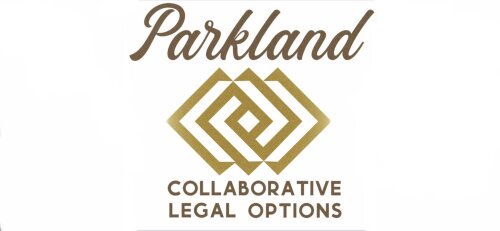Best Structured Finance Lawyers in Canada
Share your needs with us, get contacted by law firms.
Free. Takes 2 min.
Or refine your search by selecting a city:
List of the best lawyers in Canada
About Structured Finance Law in Canada
Structured finance refers to complex financial transactions that involve pooling assets and issuing securities to investors. In Canada, structured finance is commonly seen in securitizations, asset-backed securities, collateralized debt obligations, and various project finance transactions. The legal landscape is shaped by a combination of federal and provincial laws, regulatory guidelines, and established market practices. Structured finance plays an essential role in capital markets, enabling businesses and financial institutions to manage risk, raise funds, and promote investment.
Why You May Need a Lawyer
Structured finance transactions involve intricate legal, financial, and regulatory considerations. You may need a lawyer in situations such as:
- Structuring a securitization or asset-backed security deal
- Navigating securities law compliance for capital raising
- Drafting, negotiating, or reviewing transaction documents
- Ensuring compliance with Canadian and international regulations
- Addressing tax implications and cross-border structuring
- Responding to regulatory investigations or enforcement actions
- Resolving disputes between parties involved in structured finance deals
Legal guidance helps protect your interests, reduce risks, and ensure the success and legality of your structured finance transactions.
Local Laws Overview
In Canada, structured finance is influenced by several key legal and regulatory frameworks:
- Securities Laws - Securities regulation is mainly provincial, overseen by organizations like the Ontario Securities Commission (OSC) and Autorité des marchés financiers (AMF). National instruments, such as National Instrument 45-106 on private placements, also play a role.
- Bankruptcy and Insolvency Laws - The Bankruptcy and Insolvency Act and the Companies' Creditors Arrangement Act are important for structuring transactions to ensure that assets in securitizations are bankruptcy-remote.
- Taxation - Tax treatment is regulated federally and provincially, and structuring deals often involves complex tax analysis.
- Disclosure Requirements - There are detailed disclosure obligations for issuing and marketing asset-backed securities.
- Consumer Protection - Consumer laws may impact certain underlying assets, such as residential mortgages or auto loans.
Canadian structured finance transactions are also influenced by market conventions, international agreements, and risk management standards such as Basel III for financial institutions.
Frequently Asked Questions
What is structured finance?
Structured finance covers financial arrangements where assets or receivables are pooled and securities backed by those assets are sold to investors. Common transactions include securitizations, project finance, and collateralized debt obligations.
Who participates in structured finance deals?
Typical participants are originators (sellers of assets), issuers (entities that issue securities), investors (purchasers of securities), credit rating agencies, trustees, and various advisers like lawyers and accountants.
How does securitization work in Canada?
Securitization involves transferring a pool of assets to a separate entity, often a special purpose vehicle, that issues asset-backed securities to investors, thereby raising capital for the originator and transferring certain risks.
Are there special disclosure requirements for structured finance transactions?
Yes, both prospectus and exemption-based offerings require detailed disclosure about the underlying assets, risk factors, structure, cash flows, and the parties involved, in compliance with securities regulations.
What regulatory bodies oversee structured finance in Canada?
Structured finance is primarily regulated by provincial securities commissions, such as the OSC and AMF. Federally regulated financial institutions may also be subject to oversight by the Office of the Superintendent of Financial Institutions (OSFI).
Are there cross-border considerations in Canadian structured finance?
Yes, cross-border transactions require compliance with both Canadian law and the laws of the involved foreign jurisdictions, as well as potential tax, disclosure, and regulatory requirements.
What role does bankruptcy law play in structured finance?
Structuring typically aims to protect the pooled assets from an originator's bankruptcy, using bankruptcy-remote entities. Canadian bankruptcy laws must be considered for effective risk isolation.
Do structured finance transactions require regulatory approval?
Most transactions do not require pre-approval, but must comply with applicable securities laws, disclosure requirements, and sometimes notifications to regulatory bodies, especially for public offerings.
What are common challenges in Canadian structured finance?
Challenges include regulatory compliance, tax structure efficiency, legal documentation, cross-border legal risks, and ensuring proper risk transfer and investor protection.
How do I choose a lawyer for structured finance?
Look for lawyers or law firms with proven experience in structured finance, capital markets, and securitization. Consider their industry reputation, expertise in related regulations, and ability to advise on both legal and business aspects of transactions.
Additional Resources
To deepen your understanding or seek assistance, you may find these organizations and resources helpful:
- Provincial securities regulators, such as the Ontario Securities Commission (OSC) or Autorité des marchés financiers (AMF)
- Canadian Securities Administrators (CSA)
- Office of the Superintendent of Financial Institutions (OSFI)
- Investment Industry Regulatory Organization of Canada (IIROC)
- CPA Canada for taxation and accounting standards in structured finance
- Canadian Bankers Association for banking sector information
- Financial Consumer Agency of Canada for consumer-related structured finance matters
Next Steps
If you believe you need legal assistance with structured finance in Canada, here are some steps you can take:
- Assess your situation and identify specific legal or transactional needs
- Gather relevant documents and information about the transaction or issue
- Research and select a law firm or lawyer with expertise in structured finance
- Schedule a consultation to discuss your goals, concerns, and possible strategies
- Ask about the lawyer's experience, fee structures, and approach to your type of transaction
- Develop a clear plan with your legal adviser for next steps and compliance obligations
Taking action early can help address complex regulatory requirements, minimize risks, and enhance the likelihood of a successful structured finance transaction in Canada.
Lawzana helps you find the best lawyers and law firms in Canada through a curated and pre-screened list of qualified legal professionals. Our platform offers rankings and detailed profiles of attorneys and law firms, allowing you to compare based on practice areas, including Structured Finance, experience, and client feedback.
Each profile includes a description of the firm's areas of practice, client reviews, team members and partners, year of establishment, spoken languages, office locations, contact information, social media presence, and any published articles or resources. Most firms on our platform speak English and are experienced in both local and international legal matters.
Get a quote from top-rated law firms in Canada — quickly, securely, and without unnecessary hassle.
Disclaimer:
The information provided on this page is for general informational purposes only and does not constitute legal advice. While we strive to ensure the accuracy and relevance of the content, legal information may change over time, and interpretations of the law can vary. You should always consult with a qualified legal professional for advice specific to your situation.
We disclaim all liability for actions taken or not taken based on the content of this page. If you believe any information is incorrect or outdated, please contact us, and we will review and update it where appropriate.
Browse structured finance law firms by city in Canada
Refine your search by selecting a city.















